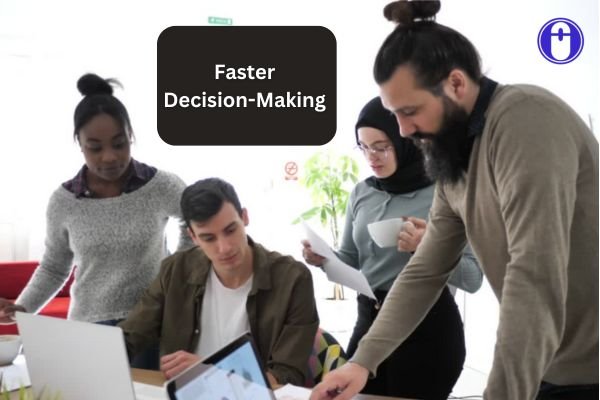Gamers, pay attention! Are you interested in the interesting link between Gaming Can Improve Cognitive Abilities? This interesting piece will start a journey into the areas where games and cognitive skills meet. Many brain-boosting activities can be done while playing games, such as getting better at solving problems and planning.
Together, we will explore the various ways that gaming enhances cognitive abilities and opens up fresh levels of mental speed and strength. Prepare for an exciting journey where every game session turns into a chance for deep cognitive growth and development. Let’s dive in together and find out how games can change your mind!
Enhanced Problem-Solving Skills
Exploit gaming’s cognitive benefits to improve problem-solving. Tetris, Portal, Civilization, and StarCraft need strategy, analysis, and flexibility. Gamers learn cognitive skills by solving complicated issues using spatial reasoning and logic.
Research shows such games promote pattern recognition, critical thinking, and cognitive flexibility. Real-time strategy gamers answered issues better than non-gamers in a PLOS ONE research, demonstrating how gaming changes cognition.
Games that challenge players and prepare them for complexity teach adaptive problem-solving. Play games that boost brainpower.
Regular play of such games improves pattern detection, critical thinking, and strategic planning, according to research. A PLOS ONE study indicated that real-time strategy gamers had superior cognitive flexibility and problem-solving skills than non-gamers. Video games foster adaptive problem-solving by constantly challenging players.
Improved Spatial Awareness and Navigation
Gaming also improves spatial awareness and navigation. Action-adventure and simulation games often include vast virtual settings that players must explore. Gamers practice spatial reasoning by navigating a vast open environment or complicated maze-like levels.
Navigation-themed video games have been found to improve mental rotation, spatial memory, and wayfinding. According to Psychological Research, action video game players fared better on spatial cognitive tasks than non-gamers. Gamers gain spatial awareness and increase their capacity to cognitively control and navigate complicated situations by playing virtual games.
Enhanced Attention and Concentration
It’s more important than ever to pay attention and concentrate in this fast-paced, easy-to-distract world. Interestingly, computer games can help you focus and pay attention. Many video games require long-term focus. This applies to tracking moving targets in first-person shooters and monitoring variables in real-time strategy games.
It has been shown that playing video games makes you better at selective, split, and sustained attention. A study in Frontiers in Human Neuroscience discovered that people who played action video games were better at managing their attention and being able to think in new ways than people who didn’t play. It’s possible for video games to help people focus and pay attention better. Video games keep players’ attention and test their brains.
Faster Decision-Making and Reaction Times

Games happen quickly, and choices made in a split second can make or break a win. By playing a game over and over, you get better at reacting and making decisions, which speeds it up.
In shooting games, players have to avoid being shot. It’s important to be exact when playing driving games. They also need to be able to quickly and correctly process information.
Action-packed video games have been shown in many studies to improve reaction times and decision-making. A study in Current Biology found that people who play action video games move faster and understand what they see better than people who don’t play.
Playing games might help your brain respond more quickly and better to things that happen in real life. Players have to quickly decide what to do and then do it using good movement skills.
Also Read: How to Improve Your Gaming Skills?
Social Benefits and Emotional Regulation
Most of the research on gaming and cognition is focused on the individual experiences that players have while playing. However, it is important to recognize the social and mental benefits that gaming may offer.
Many computer games let people interact with each other and work together. You could play a game with friends or join an online group for people who like the same things you do to make the most of these changes.
Playing games with other people can help many learn how to get along, talk, and work alone. People can also work on controlling their emotions and public speaking skills while playing video games in a safe and helpful environment.
Studies have shown that playing immersive games can help people deal with worry, and bad feelings, and make them stronger when things go wrong.
Final Words
By offering a stimulating environment for the growth of different mental abilities, gaming Can Improve Cognitive Abilities. Video games improve a lot of cognitive skills, such as your ability to focus, make decisions, and handle your feelings. They also help you become more physically aware. Games aren’t just for fun, according to research. They can also help with mental flexibility, endurance, and making friends. People can improve their cognitive skills and deal with the problems of modern life more quickly and easily if they understand how gaming can change the mind.
Frequently Asked Questions
Games help cognitive development by stimulating problem-solving, decision-making, and memory. Engaging gameplay scenarios boost brain activity, improving mental sharpness and cognitive progress.
Games that are made to improve brain skills usually include a variety of tasks, such as memory training, improving attention, and critical thinking exercises. These games offer structured tasks that focus on specific cognitive skills, making them a good way to improve your brainpower.
Of course! For example, games can help people remember things, pay attention, and be aware of what’s going on around them, according to scientists. To keep your brain healthy, play games often. In many parts of your life, this can help you think more clearly.
Games that make you think by giving you tasks that require you to solve problems, find patterns, and make plans are great ways to improve your thinking skills. By doing these mental exercises, gamers can improve their general thinking skills and make their minds more flexible.
Share



